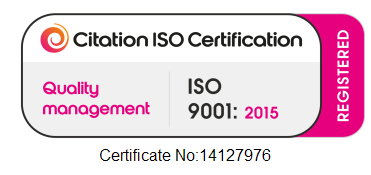Ketamine, initially developed as an anaesthetic for medical and veterinary purposes, has become increasingly popular as a recreational drug. Its dissociative and hallucinogenic effects can seem appealing, but unsupervised ketamine use carries significant risks, including potential harm to your physical and mental health. This guide aims to provide you with clear information about ketamine's effects, risks, and strategies for harm reduction.
What is Ketamine?
Ketamine is a dissociative anaesthetic, meaning it alters your perception and can create a feeling of detachment from reality. At lower doses, it may produce mild euphoria or hallucinations. Higher doses can lead to a "K-hole," characterised by extreme dissociation and loss of bodily control.
Medically, ketamine is used for pain relief and as an anaesthetic for both humans and animals.
On the street, ketamine typically appears as a grainy white or light brown powder, sometimes mistaken for cocaine. It can also be found in tablet form, although this is less common.
How is Ketamine Used?
Common methods of recreational ketamine use include:
- Snorting: The most common method involves snorting the powder. Small amounts are often referred to as "bumps."
- Bombing: Some users ingest ketamine by wrapping the powder in cigarette paper and swallowing it.
- Injecting: Regular users may inject ketamine intramuscularly to achieve a more intense effect, which carries additional risks.
Short-Term Effects
Recreational ketamine use can produce the following short-term effects:
- Altered perception and dissociation.
- Euphoria or a dream-like state.
- Nausea, dizziness, and blurred vision.
- Increased heart rate and blood pressure.
- Impaired coordination and judgment.
These effects typically last 30 minutes to an hour, depending on the dose.
Long-Term Risks
Chronic or heavy ketamine use can lead to serious health consequences:
- Physical Health Risks: Bladder damage (ulcerative cystitis), kidney damage, and gastrointestinal issues like stomach cramps.
- Mental Health Risks: Memory loss, confusion, anxiety, depression, paranoia, and psychosis.
- Dependency: Prolonged use can lead to tolerance and withdrawal symptoms, indicating addiction.
Recognising a Ketamine Overdose
A ketamine overdose is a medical emergency. Symptoms include:
- Difficulty breathing or respiratory failure.
- Severe confusion or disorientation.
- Paralysis or inability to move.
- Hallucinations or violent behaviour.
- Seizures or loss of consciousness.
If you suspect an overdose:
- Call emergency services immediately.
- Place the person in the recovery position if unconscious but breathing.
- Do not leave them alone.
Harm Reduction
If you choose to use ketamine despite the risks, these strategies can help minimise harm:
- Avoid Mixing Substances: Combining ketamine with alcohol or other drugs significantly increases the risk of respiratory failure and accidents.
- Start Low and Go Slow: Use small amounts to avoid overdose or severe dissociation.
- Stay Hydrated: Ketamine can cause dehydration. Drink water, but avoid over-hydration.
- Use in a Safe Environment: Avoid using alone. Have a sober friend present to assist in case of adverse effects.
- Take Breaks: Regular use increases tolerance and dependency risks. Take extended breaks between uses.
- Avoid Sharing Banknotes: Sharing banknotes for snorting can spread blood-borne viruses.
The Legal Status of Ketamine
Ketamine is classified as a Class B controlled substance under the Misuse of Drugs Act 1971. Possession can result in a prison sentence of up to 5 years.
Seeking Help and Support
If you or someone you know is struggling with ketamine misuse, support is available:
Contact our specialist team on hnf.tr.impact@nhs.net
Recovery is possible with the right support
Understanding the risks associated with ketamine is essential. By staying informed, adopting harm reduction practices, and seeking help when needed, you can reduce the potential harm associated with ketamine misuse. Your health and wellbeing are important.







